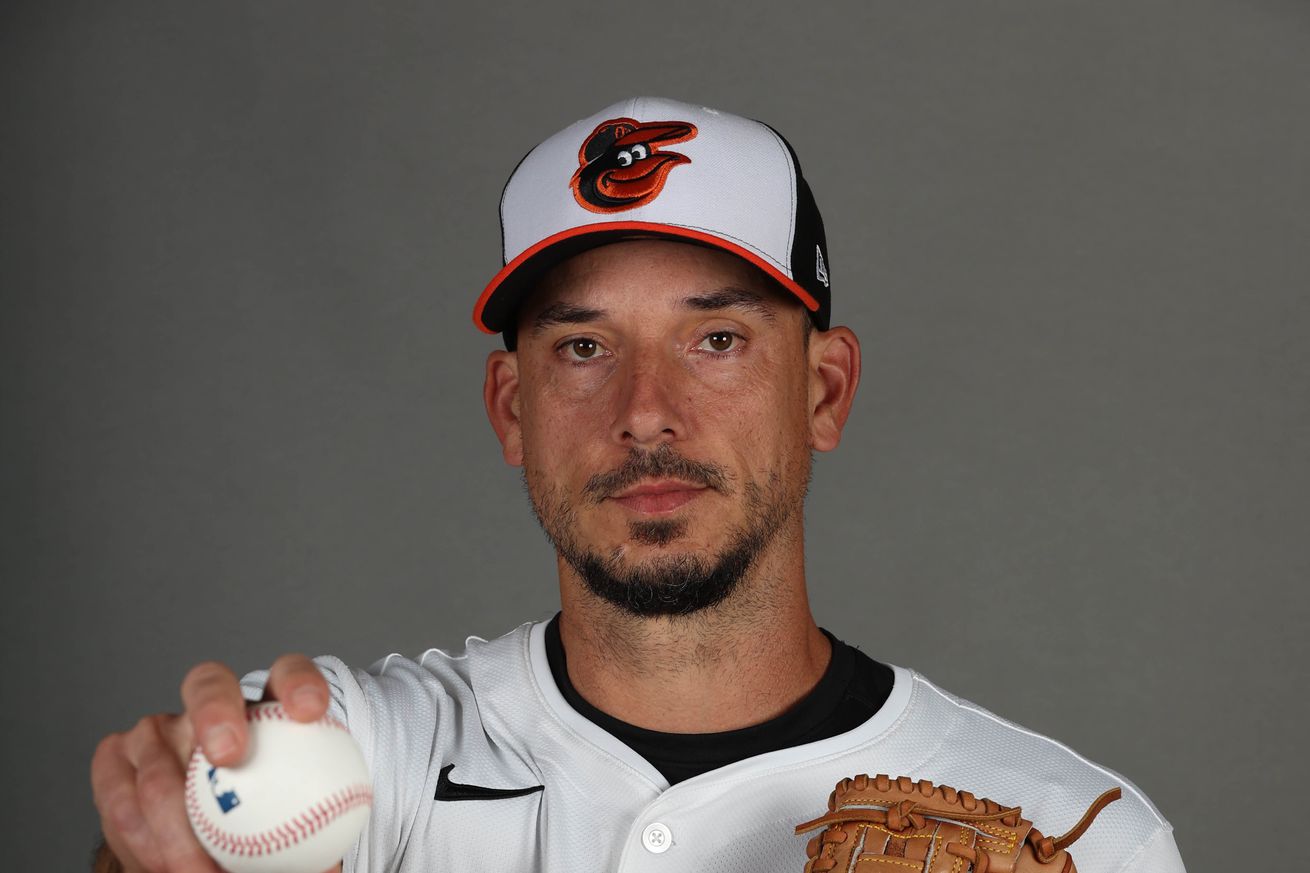
The grizzled veteran is the first 40-year-old starting pitcher in Orioles history. Can he provide a stable presence at the back of the O’s rotation?
I’m not saying Charlie Morton is old, but when he started his professional career, Jackson Holliday wasn’t born yet. (Morton did, however, pitch 35 times to Jackson’s dad, Matt.)
I’m not saying Charlie Morton is old, but one of his former teammates had a teammate who played with Warren Spahn. (That’d be Tom Glavine and Phil Niekro, respectively.)
I’m not saying Charlie Morton is old, but…well, he is. In a baseball sense, anyway. (He’s still — heavy sigh — younger than me.)
When Morton, 41, takes the mound this year, he’ll be doing something that no Oriole has ever done: make a start at age 40 or older. He’ll be only the seventh 40+ pitcher in O’s history; the previous six were relievers, and none since Steve Reed in 2005. So, yeah, it’s been a full two decades since a graybeard like Morton delivered a pitch for the Birds, and none has ever been expected to eat up five or six innings every game like he is.
Still, Morton’s age hasn’t stopped him from being a reliable mainstay in team’s rotations the past few years. Dating back to 2018, he has made 30 or more starts in every full season, first with the Astros, then the Rays, then Atlanta. That string of durability began when Morton was 34. Before that, he’d never had a single 30-start season in his career. He’s what you call a late bloomer.
It’s been quite a road for Morton, who spent the better part of a decade as a barely replacement level pitcher. The Braves drafted him in 2002, and just after he finally arrived in the majors six years later, Atlanta dealt him to the Pirates for one-time Orioles outfielder Nate McLouth. Morton spent a full seven years in Pittsburgh, made 142 starts, and compiled a total WAR of…0.1. Yikes. It’s hard to be that mediocre for that long of a stretch.
But Morton’s career took off in 2017 when he joined Houston, where Mike Elias was the assistant general manager at the time. The Astros’ vaunted analytics staff transformed Morton’s repertoire, converting him from a middling, pitch-to-contact sinkerballer into a strikeout-heavy, two-seam specialist. Since then, a guy who previously looked to be on his way out of baseball has extended his revitalized career longer than anyone thought possible.
The question is, how long can he keep it up? Even Morton doesn’t seem sure. He’s been considering the possibility of retirement since at least 2018, and he told the Baltimore media that he might have walked away from the game this winter if the Orioles hadn’t come calling (and thrown $15 million at him). Elias and his staff clearly are betting on Morton continuing to defy the aging process. What does ZiPS expect for him in 2025?
ZiPS projection: 8-9, 27 GS, 149.2 IP, 4.39 ERA, 8.84 K/9, 3.61 BB/9, 1.1 WAR
The games and innings totals would be Morton’s lowest in a non-pandemic-shortened season since 2017, and the strikeout rate would be his worst since 2015. Corbin Burnes, he ain’t. Still, I think the Orioles would be perfectly content with that kind of performance from a back-end starter. For over/under purposes, let’s zoom in on the projected 4.39 ERA.
The case for the under
Considering the wild fluctuation in Morton’s results in the past few seasons, ZiPS might as well have spit out his 2025 projections as “i dunno, lol.” After posting a career-best 3.05 ERA in 2019, Morton stumbled to a 4.74 mark in the abbreviated 2020 campaign, improved dramatically to to 3.34 the following year, got a full run worse in 2022, lowered it to 3.64 a season later, and trended back above four with a 4.19 ERA last year. There’s been no gradual improvement or gradual decline. He’s gone back and forth from year to year with no real rhyme or reason.
I suppose the good news is that the odd-numbered years tend to be his best ones. And with Morton back under the tutelage of Elias and some of the ex-Astros analytics staff that once rejuvenated his career, there’s reason to be optimistic that he’s got another good year, or at least a perfectly solid year, left in him. Clearing a 4.39 ERA shouldn’t be too hard to accomplish for Morton, who hasn’t had a mark that high in a full season since his Pirates days a decade ago.
The case for the over
Father Time, as they say, is undefeated, and even the seemingly ageless Morton will at some point fall victim. There were signs of decline last season, when his strikeout rate dropped from 10.1 to (an admittedly still good) 9.1, while his FIP rose from 3.87 to 4.46. Should his fastball lose a MPH or two, or his breaking ball fail to move quite as it used to, that could make all the difference between another solid season and a permanent push toward retirement.
That’s not to say Morton will have a terrible season, but an ERA of worse than 4.39 isn’t hard to imagine. When it comes down to it, there’s a reason there’s hardly any 40-year-olds still active in the majors.
